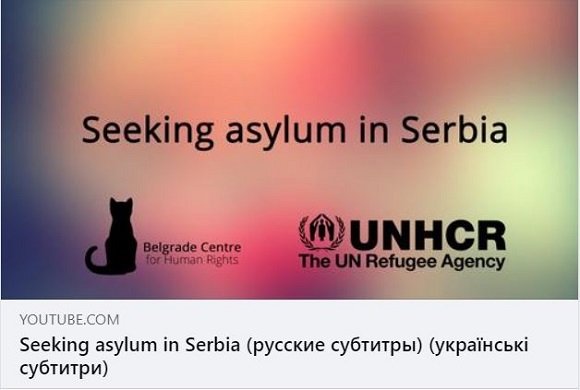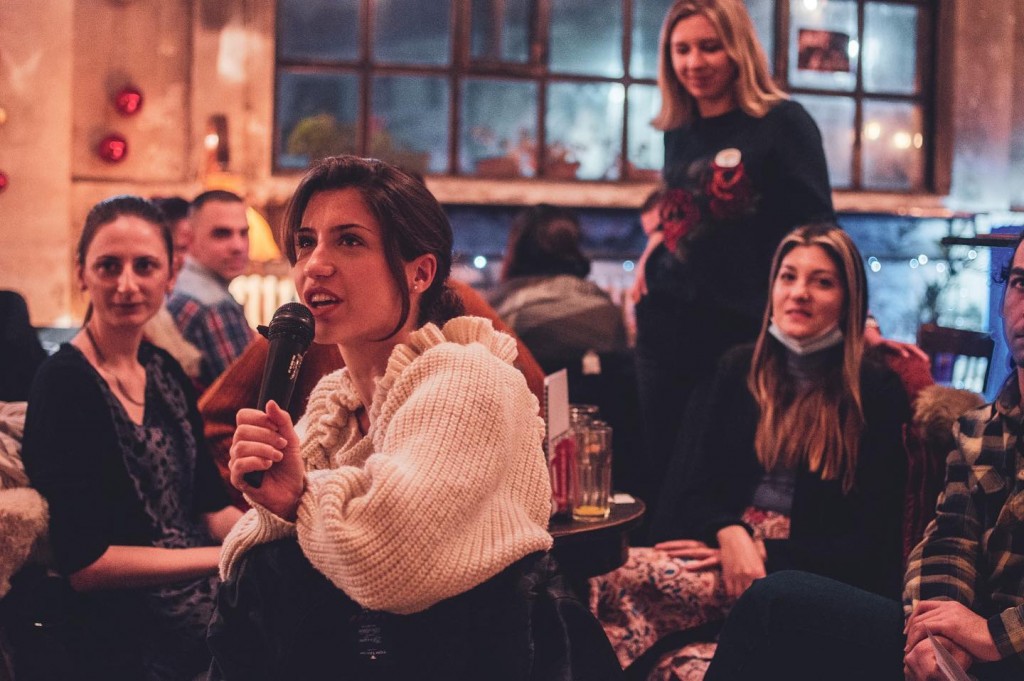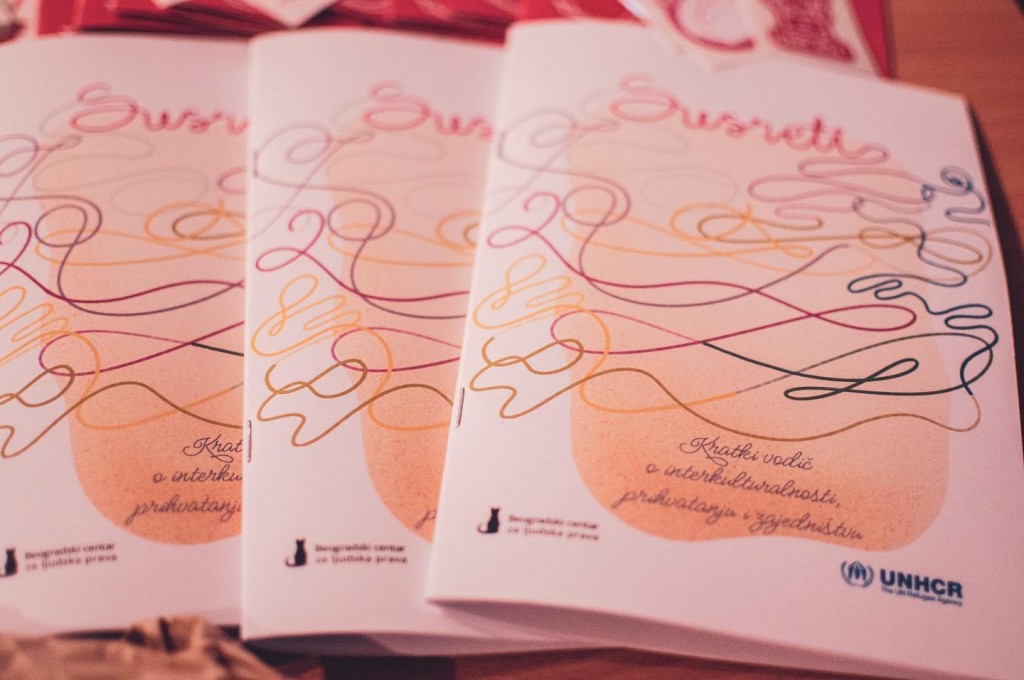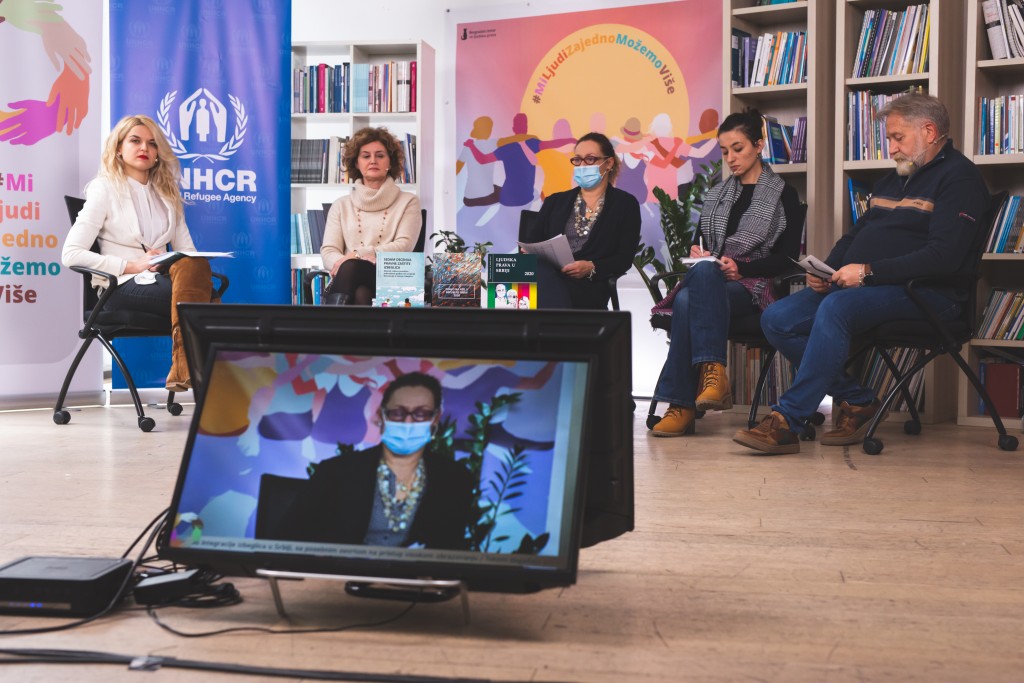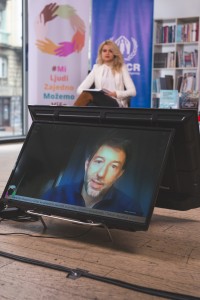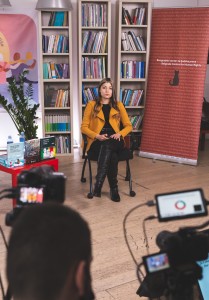 The Belgrade Centre for Human Rights, as the only non-governmental organization that is a full member of the global network of the Association of Human Rights Institutions (AHRI), publishes AHRI statement on the Russian aggression against Ukraine:
The Belgrade Centre for Human Rights, as the only non-governmental organization that is a full member of the global network of the Association of Human Rights Institutions (AHRI), publishes AHRI statement on the Russian aggression against Ukraine:
We, the Association of Human Rights Institutes (AHRI), as a global network of academic human rights institutes, stand in solidarity with Ukraine and voice grave concern over aggression by the Russian Federation against the sovereign State of Ukraine.
The 24th of February 2022 marks a dark date for the twenty-first century. The decision of the Russian Federation to breach the territorial sovereignty of Ukraine, to put the fate of millions of Ukranian and Russian people at risk, is an indisputable violation of the fundamental principles of the UN Charter and poses a direct threat to countless rules of international law, including international human rights law and international humanitarian law. We recall AHRI’s Potsdam Declaration where mutual cross-fertilization of these two branches of international law has been underlined.
The Russian Federation and Ukraine both have committed to upholding the UN Charter, the sovereign equality of all Member States, and Article 2(4) which prohibits the use of force against the territorial integrity or political independence of other States. Both states are also members of the Council of Europe, the OSCE and subject to a range of agreements directed toward preserving peace, security and human rights. The Russian Federation’s invasion of sovereign Ukrainian territory is a clear violation of international law and endangers the postWorld War II peace architecture that has prevailed over Europe these last seven decades.
The Russian Federation is bound, also, by seven of the core UN human rights treaties as well as the European Convention on Human Rights. We recall the position of the Human Rights Committee that States parties of the International Covenant on Civil and Political Rights who are engaged in acts of aggression as defined in international law, resulting in deprivation of life, violate ipso facto the right to life as protected by Article 6 of the Covenant. Each step the Russian Federation takes in Ukraine negates its commitment to respect and protect the rights of civilians in Ukraine and those in Russia who are unable to safely voice their opposition to their government’s actions. This unprecedented use of force and blatant breach of the UN Charter, the Charter of Paris, and the Helsinki Final Act brings suffering and misery to Ukraine and its people. A country that laboriously paved its path towards democracy. A country that in 1994 gave up its nuclear arsenal. A country that has sought to ensure peace and prosperity through the bonds of international agreement and cooperation.
Until the Russian Federation halts this course of action, many lives will be lost, many people will be internally or internationally displaced, children will be deprived access to education, healthcare, and safety. Ukrainian people will lose their homes, their forms of livelihood and their rights to be secure. There have already been documented indiscriminate attacks on civilians and civilian infrastructure.
As an international network of human rights institutes, we cannot stand silent. We strongly condemn the armed aggression of the Russian Federation against Ukraine. We will use our network and undertake all actions at our disposal to help Ukrainian citizens.
We call on the Russian Federation to immediately cease hostilities in Ukraine. Until that point, we call on the Russian Federation and its armed forces to respect rules of international humanitarian law and international human rights law. We call on our governments and international organizations to take all steps that may stop the war and to help Ukraine and its people.
We urge all relevant actors to document atrocities and violations for future accountability.
We call on Russian academics and human rights institutes to fight misinformation and to speak the truth when international law arguments are misused and abused.
When peace is finally achieved, Ukraine will need the world, Europe and the support of all of us to rebuild. Not simply their physical surroundings, but their faith in the rule of law and its aims to promote peace.
We stand in solidarity with Ukraine, with our academic colleagues and students.
28 February 2022
AHRI Statement on Russian Aggression against Ukraine in English is HERE.
 We are pleased to introduce our new brochure #UspraviSe! (#StandUp!) with the aim to bring closer topics related to human rights and rule of law to Serbian citizens, especially to young people.
We are pleased to introduce our new brochure #UspraviSe! (#StandUp!) with the aim to bring closer topics related to human rights and rule of law to Serbian citizens, especially to young people.








